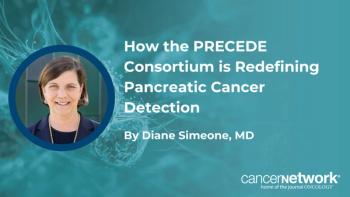
Integrating Psycho-Oncology Specialists Into Multidisciplinary Cancer Care
It is crucial that oncologists and other cancer care specialists collaborate with psycho-oncology specialists to optimize patient treatment outcomes.
According to Cristiane Decat Bergerot, PhD, BS, MS, psychosocial care and support have a significant impact on a patient’s experience during cancer treatment, as well as the outcome of their therapy.
Bergerot, a psychologist, the head of supportive care at Grupo Oncoclinicas in Brazil, and a member of the International Psycho-Oncology Society, stated that addressing the distress a patient is under can improve many facets of treatment such as adherence, communication, and quality of life.
She also emphasized the importance of good collaboration between oncologists and cancer care specialists with psycho-oncology specialists. Ways to optimize this partnership include utilizing distress screenings, improving communications, and spreading proper education and training.
Following the announcement of the inaugural World Psycho-Oncology Day on April 9, 2025, CancerNetwork® interviewed Bergerot.
Transcript:
Working in psycho-oncology has reinforced the profound impact that psychosocial support has on a patient’s experience and treatment outcomes. I have seen, firsthand, how addressing emotional distress can improve adherence to cancer treatments, enhance communication between patients and their healthcare teams, and with the symptom burden. For example, patients who receive psychological support often report greater resilience, better pain management, and improved quality of life. Furthermore, psycho-oncology interventions help caregivers by reducing their burden and improving their capacity to provide care. We know that the growing recognition of psycho-oncology as a core component of cancer care has been incredibly rewarding, as it validates the importance of treating the patient as a whole.
The collaboration [between oncologists and psycho-oncology specialists] is key to optimizing treatment outcomes. We can use several strategies to enhance this partnership, such as implementing systematic distress screenings during oncology visits to help identify patients who would benefit from psychosocial support, integrating care models to ensure seamless referrals and timely interventions, improving interdisciplinary communications, and providing education and training to recognize this distress early and refer patients appropriately.
Reference
World Psycho-Oncology Day (WPOD). IPOS. Accessed April 2, 2025. https://tinyurl.com/43c9rr2c
Newsletter
Stay up to date on recent advances in the multidisciplinary approach to cancer.










































